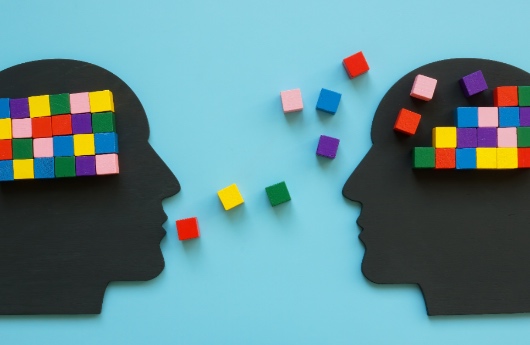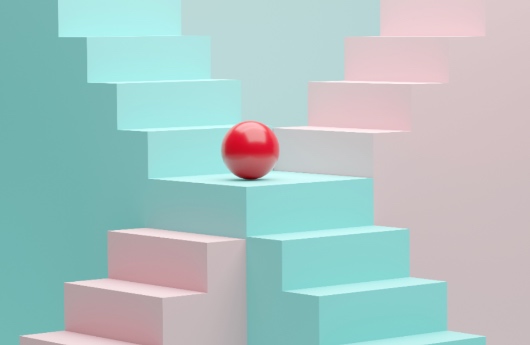Light It Up
Made bad choices at work lately? Your lighting could have something to do with it.

The next time you send off an angry work missive or lash out on a phone call, take a second to observe what kind of light you're working in.
Recent studies show we act differently in low light than we do in the light of day. When the lights are dim, humans tend to feel less connected to others. In the shadows, we care less about what others think of us. One theory is that ambient darkness lowers our visual acuity and makes us feel hidden from others. So we let down our guard and are more apt to make more hedonistic (read: authentic) choices.
Indeed, in a series of recent experiments, researchers at Northwestern University's Kellogg School of Management looked at how lighting changes people's inhibitions. When the study's subjects had the opportunity to choose between two chairs-one ergonomically designed yet unattractive, and the other stylish but uncomfortable-the room's light determined what people chose. In a well-lit space, the more prudent, comfortable chair was selected, while those in dark rooms picked the beautiful, uncomfortable option. The takeaway: there's a new psychological consequence to darkness-people choose the option that provides immediate pleasure.
And such information is becoming all the more critical as professionals work round the clock, and in a variety of places-from a desk in a fluorescent-lit office to the corner of a trendy coffee shop to working late at night in bed. With that in mind, here's what you need to know to manage the light in your life-or at least in your workspace.
Let the (natural) light shine.
There are more benefits to that corner office than just the view. That's because the power of having access to natural light throughout the day can send you into hyperdrive.
Cornell University researchers found that hospitals that provided a source of natural light in the nurses' workstations saw a significant improvement in the health and attitude of employees. The nurses had lower blood pressure, laughed more, and served patients better than nurses who worked within hospitals lacking windows. Another study found office workers with access to natural light slept better and remained in better physical condition, leading to less absenteeism.
These studies also found that having exposure to natural light in the morning had more impact. That's because daylight allows the body to remain on a circadian rhythm, producing better sleep and a sense of well-being, which ultimately improve productivity and work quality.
Treat blue light with caution.
First, the benefit of blue light: an associate professor at Harvard University found that fewer errors occurred at NASA Mission Control by switching to rich-blue lighting, which is prevalent in the morning and early afternoon.
But that doesn't mean blue lighting is always good. This type of light, which smartphones project, prevents our bodies from easing into restful repose. That means sending emails at night not only may cause us to let our guard down in our responses, but also crush our sleep quality.
In a study published in the journal Organizational Behavior and Human Decision Processes, researchers tracked the smartphone use of 82 upper-level managers. They found that smartphone use after 9 p.m. resulted in less sleep and a reduction in work productivity the next day. The crux of the problem is that our brains recognize blue light as a signal that it's time to wake up, so settling down after sending that message makes it that much harder to sleep.
Find the just-right light.
About 68% of professionals don't enjoy the type of lighting in their offices. Whether it's because there are too many fluorescent bulbs or it's too dark, we're often stuck in whatever light beams the bosses (or HQ designers) decide on. But that doesn't mean you can't do something to help your own productivity.
Try to match your lighting to the cycle of the day, experts say. In the morning and early afternoon, having more natural and blue light is ideal. In the afternoon and early evening, your body shifts to needing warmer hues. The gentler lighting induces relaxation by mimicking the brightness you would expect as the sun begins its daily descent. Even a few minutes break from the pang of fluorescent lighting in the afternoon can help you relax, reduce stress, and improve productivity, studies show. Which is all the more reason to take a break and step outside.








